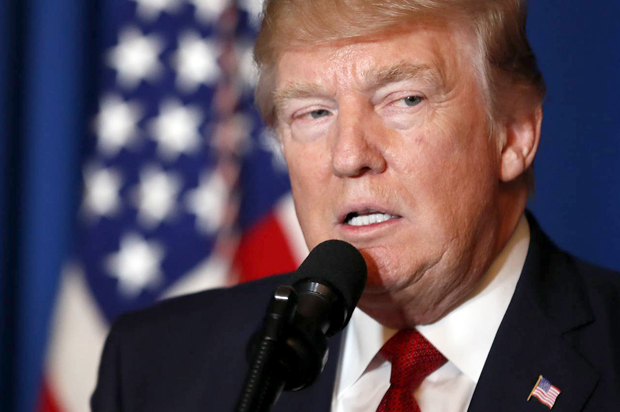When treason became a Washington buzzword, the pushback came fast and furious.
Donald Trump’s meeting with a Russian government attorney, a Russian government lobbyist and others to obtain damaging information about Hillary Clinton does not qualify as treason, the Washington Post explained, because of the language of the Constitution.
“Treason is a little extreme for this,” said law professor Richard Briffault. “[Russia] may not be our friend, but it is not clear they are our enemy. We are not at war.”
The very allegation is a sign of the “licentiousness of the press,” sniffed the Washington Times.
Team Trump has possibly violated 52 U.S. Code Section 30121, said the experts at Slate. And even on that petty charge, scholars dispute whether a foreign government’s opposition research constitutes a “thing of value.”
Such are the pedantic ways of commentators stuck in the pre-post-modern world where (they believe) their facts are inherently superior to “alternative facts” and legalisms will (one day) prevail over right-wing rhetoric, if only liberals play nice. It’s an attractive sentiment refuted only by reality.
Common sense
The dismissal of the treason charge, wittingly or unwittingly, abets the White House strategy of improvising a new legal defense as law enforcement closes in on the perpetrators.
The claim that the Trump campaign had no contact with the Russians and that the charge of collusion was “disgusting” has morphed into the claim that collusion with a foreign power is just “politics,” and doesn’t meet the legal definition of tradition.
The goal of this strategy is to exculpate Team Trump from criminal charges as new facts emerge. There’s no reason why Trump’s critics need to play along.
The commonsense definition of treason is “betrayal of country,” the standard that Team Trump has interpreted broadly for its own purposes.
(embed)
In 2016, New Hampshire State Rep. Al Baldasaro said Hillary Clinton “should be shot for treason.” Last month Baldasaro was invited to the White House.
Team Trump has no grounds for criticizing anyone for a loose definition of treason. For the White House, “treason” is a useful stick to bludgeon its opposition.
“Effecting by force”
Trump’s critics have a higher standard: treason is a plausible, if not yet proven, interpretation of the acknowledged facts.
Contrary to Professor Briffault, treason as defined in the U.S. Constitution and the law does not require that the enemy be “at war” with the United States. Article 3 of the U.S. Constitution states, “treason against the United States shall consist only in levying war against them, or in adhering to their enemies, giving them aid and comfort.”
The legal meaning of “levying war” is not synonymous with “at war,” nor does it require a formal declaration of war.
The definition of levying war is:
“the assembling of a body of men for the purpose of effecting by force a treasonable object, and all who perform any part however minute, or however remote from the scene of action, and who are leagued in the general conspiracy, are considered as engaged in levying war, within the meaning of the Constitution.”
The question is: Did Donald Trump Jr., Jared Kushner and Paul Manafort assemble with assorted Russian government representatives on June 9, 2016, for the “purpose of effecting by force a treasonable object?”
The question cannot be answered because we have not yet heard Kushner and Manafort’s account of the meeting. We don’t know what they hoped to effect. Special Prosecutor Robert Mueller is making inquiries.
What we do know is that the Trump White House’s account of the meeting is fraudulent (no, it wasn’t about adoption as the Trumps originally claimed) and that fraud can be a form of force.
In other words, the assertion of treason may be premature, but the accusation is not. The possibility of treason cannot be excluded based on the available evidence, as Senator Tim Kaine noted.
“Nothing is proven yet,” Kaine told CNN. “But we’re now beyond obstruction of justice in terms of what’s being investigated. This is moving into perjury, false statements and even into potentially treason.”
The available evidence shows that the actions of Team Trump are potentially treasonous. The buzzword, properly modified, is precise, if not prescient.



